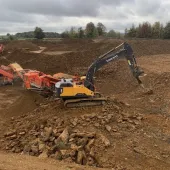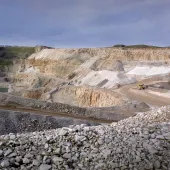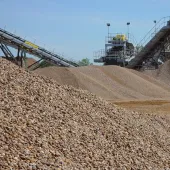Shortage of quarry reserves is a growing problem

Failure to replenish production with consents for new reserves now having a serious impact on the industry
THE quarrying industry’s failure over many years to replenish aggregates production with consents for new reserves is now having a serious impact on the industry, according to a major new report by industry marketing specialists BDS Marketing Research Ltd.
The report which estimates the volumes of reserves and reserves life at each operating and inactive pit and quarry in Great Britain, concludes that, of the largest regions, the South East and Yorkshire have the lowest sand and gravel reserves life, with areas such as London, West Sussex, Hampshire and South Yorkshire particularly badly affected.
However, the problem is not limited to these regions, as Warwickshire and the Cotswold Water Park are also suffering from a shortage of reserves, and BDS have identified that more than 100 pits and quarries could close in the country, within the next five years, unless new reserves are granted.
Commenting on the report, principal consultant Julian Clapp said: ‘Many of these sites will be the subject of an application to extend reserves. However, some quarries have no physical reserves left that are adjacent to the site. With markets picking up strongly, aggregates companies need to get their planning applications submitted soon to ensure continuous aggregates supply.’
By company, BDS believe that Hanson have above the industry average for sand and gravel reserves life, whilst Aggregate Industries are thought to have slightly below the industry average. In terms of volumes, BDS estimate that Lafarge Tarmac have the most consented reserves, followed by Hanson and CEMEX.
The reserves position is much better in crushed rock, although here too, there are some local shortages. One concern is the future supply of nationally important high-PSV stone from quarries in North Yorkshire.
In crushed rock, the position of Aggregate Industries is believed to be better as they are thought to have the highest volume of consented reserves. BDS have identified the company as having a particularly strong reserves position in Scotland and the South West.
The order of the companies with the highest volume of crushed rock reserves is believed to be Aggregate Industries, Lafarge Tarmac and Hanson.
As well as site-specific information, the newly published 150-page report also includes graphs and analyses that identify the reserves position at county, regional and national level for all aggregates companies in the industry, together with details of more than 500 planning developments.
For further information about the report, entitled: ‘Estimated reserves of pits & quarries in Great Britain in 2013’, contact BDS Marketing.









